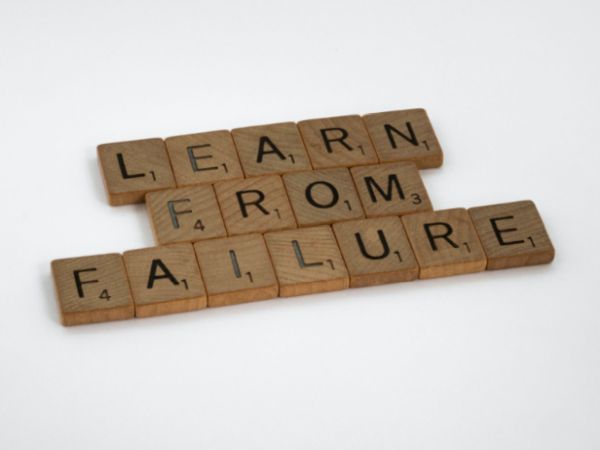10 Reasons Why Your Small Business Will Fail
 Many entrepreneurs start their businesses with high hopes, only to find out how difficult running a small business truly is.
Many entrepreneurs start their businesses with high hopes, only to find out how difficult running a small business truly is.
Despite their drive and education, most small businesses fail within ten years. Whether they lost customers due to poor customer service or loss of funding took them out of the game, all small businesses are at risk of losing everything.
So if you want your small business to succeed, you need to know what to avoid. Here are the reasons why your small business will fail.
1. Poor Leadership
Many entrepreneurs might be great at developing products, but they’re poor leaders. Being a good leader doesn’t come naturally to most, but leadership skills are necessary for any small business owner.
Bad leadership results in unhappy employees, resulting in high turnover rates and a bad company reputation.
Small businesses require good leaders who can motivate employees and pay attention to the little things, including employee needs.
2. Lack of Value
Successful companies keep their promises to the consumer. Underdelivering or failing to provide long-lasting value to customers can make any company fail. Small businesses that get too excited about earning money tend to forget what it takes to sustain growth.
Additionally, if you’re only thinking about how much money you can make, you’re not thinking about your customers’ needs.
Your customers will know if you only care about their money and not their experience with your company. You should always aim to add value to your goods and services while providing quality customer service.
 3. Not Understanding Target Audience
3. Not Understanding Target Audience
If you don’t understand your customers, you can’t effectively market to them, which means you can’t earn new customers through digital advertising or traditional marketing.
Without the right data, you also can’t decide which strategies are right for your business.
For example, your audience might be swayed by influencer marketing, but Google Ads don’t work on them. If you don’t know this valuable information about the people you want to buy your products, you can’t find cost-effective ways to reach them.
With good planning and quality market research, you can learn just about anything about your target market to help you understand their wants and needs.
4. Zero Transparency
Modern customers want to purchase products and services from companies that offer complete transparency.
Being transparent is a trust signal that many consumers look for when deciding which companies they should spend their money on.
When it comes to transparency, you should be honest about the way you do business and your pricing. Additionally, you can even allow negative reviews on your website to demonstrate how you deal with customers who have had a negative experience.
5. Uncontrolled Spending
If you’re not managing your small business finances, you’re going to lose control of your spending, which means not having enough funds to continue running your business or paying your employees.
Your business needs to keep track of where money is going, and you should remain accountable for every decision you make.
You should also keep a daily sales record to plan and manage your projects and finances effectively. Additionally, you should never spend large amounts of money without considering every angle first.
When you first start making money, it’s not usually the time to invest more money into a new facility or top-of-the-line equipment. Instead, you should always know how your operations are doing and avoid spending money on things you can’t afford.
6. Not Being Competitive Enough
All businesses need to be competitive. No matter what industry you’re in, you’re going to have competition, and being unable to match that competition means losing out on valuable customers.
So as a small business owner, you need to learn how to compete with big businesses.
7. Not Hiring the Right People
Your business depends on having the right people in the right jobs. However, many small businesses make the mistake of hiring the wrong people because they just don’t know any better.
While anyone can learn to do various jobs, you should always hire experts in their field if you want to get your business off to a great start.
Try to avoid hiring family members, at least at first. While working with your family might seem like a great idea, it can become detrimental to your business.
Not only could your family members not be the right person for their roles, but bringing your personal life into your business life can cause unnecessary stress.
Therefore, it’s best to take your time when searching for employees and use the best platform to make the hiring process smooth.
8. No Flexibility
Businesses that cannot adapt to a changing market and the ever-changing needs of their customers will eventually go out of business.
You may love the way your business operates or a specific product, but if customers demand you make changes and you don’t, they’ll go somewhere else.
All businesses need to be flexible in terms of how they run their business and how they meet customer demands. If you’re unwilling to change with your customers’ needs, your business will never be sustainable.
9. Not Innovative Enough
Innovation doesn’t mean creating a brand new product that’s never been seen before; it means finding new ways to meet the demands of your customers.
Any type of business can make money, but only those who come up with new ideas can be successful. Ultimately, your ability to add more value to a product or service than anyone else in your industry is what makes you stand out.
10. Bad Marketing
Even if you have enough market research to tell you everything you know about your customers, you can still fail if you have bad marketing. Every brand needs a personality, and if your personality isn’t resonating with your customers, you have a big problem.
Bad marketing can be anything from a bad name to a terrible user experience on your website. It may also include spending thousands of dollars on marketing tactics that simply don’t work for your industry or business.
For example, a service business might try cold calling only to realize they’re spending too many resources for too few leads. If that’s the case, you will ultimately fail if you’re unwilling to try a new tactic, such as digital advertising for online lead generation.
Final Thoughts
Running a business takes trial and error. You never know what will work and what won’t until you try it. However, you should also be smart in what you choose to try since everything comes at a cost.
Arming yourself with market research and customer data can help you learn more about your customers so you can meet their needs and market to them more effectively.
 Matt Casadona
Matt Casadona
Matt Casadona has a Bachelor of Science in Business Administration, with a concentration in Marketing and a minor in Psychology.
Matt is passionate about marketing and business strategy and enjoys San Diego life, traveling, and music.






